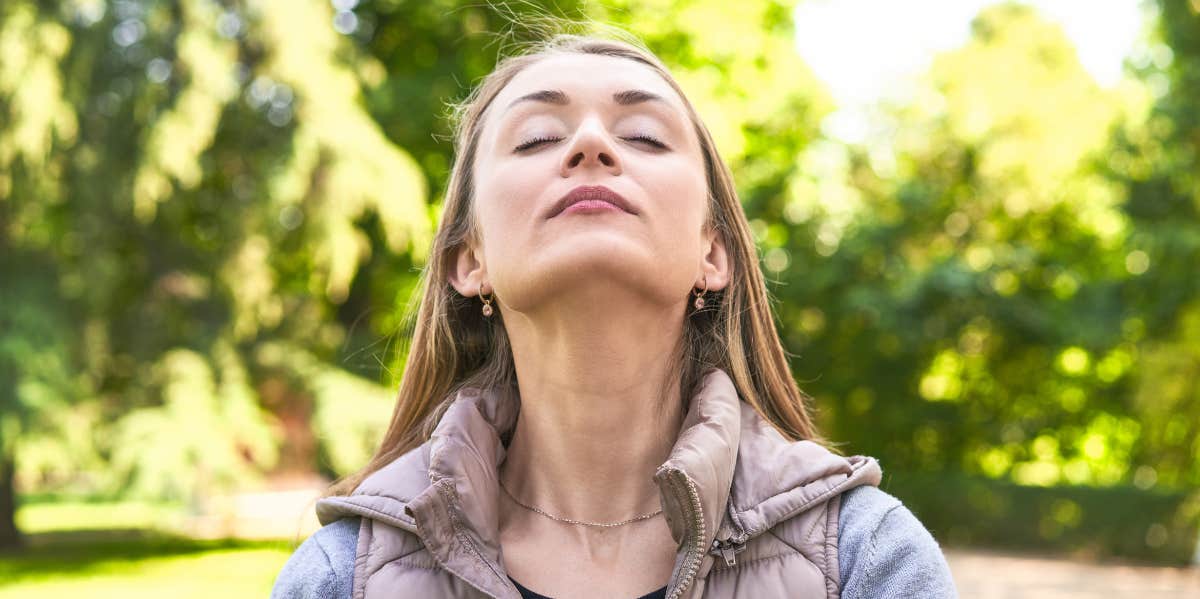
Why do some people look older than they are?
By Christine Schoenwald — Last updated on Jun 26, 2023
Photo: Asier Romero/ Shutterstock

If you're ever in doubt that we all experience the aging process at different rates, just go to your high school reunion.
Remember Carla, the bully who threatened to flush your head in the toilet? Well, now she looks like she's had a really hard life and is coming up on her 65th birthday.
Oh, look! There's Kira, the girl everybody wanted to be. Now she could easily pass for someone's grandmother ...
And you only graduated a few years ago.
What is biological age vs. chronological age?
At the most basic level, "Chronological age is the number of years a person has been alive, while biological age refers to how old a person seems."
RELATED: People Who Make These 5 Selfie Faces Age Faster
Scientists have confirmed that some people grow older at radically different speeds than others. So if some of us look like we're aging more gracefully while others seem to be getting older at a faster pace than their still-don't-look-a-day-over-20 classmates, they probably are aging more rapidly on the inside as well.
A 2015 study of approximately 1,000 men and women born between April 1972 and March 1973 (all 38 years old at the time) examined biological age in comparison to chronological age in order to better understand participants' "pace of aging."
The team of researchers used 18 biological markers — including blood pressure, organ function, cholesterol, dental health, and metabolism — to assess the biological age of each participant.
They found that most subjects had biological ages closely matching their number of birthdays, but others had biological ages much younger or older than their chronological age.
While most appeared to be aging at a rate of one year per year, some were aging at a rate of up to three years per year, and others were aging at a rate closer to zero years per year.
Study author Daniel Belsky, an assistant professor of medicine at Duke University's School of Medicine and Center for Aging, in Durham, N.C., explained, "What we found is a clear relationship between looking older on the outside and aging faster on the inside ... And also that it's possible to measure the kind of aging process in young people that we usually only look for in old people."
RELATED: 15 Ways Women's Bodies Change As We Age (That Are Nothing To Be Ashamed Of)
Men and women who didn't fare well on the biological measurements for aging also fared worse on tests usually given to the elderly, such as balance and coordination, as well as on tests of mental acuity (i.e., sharpness of mind), like solving unfamiliar problems.
Biologically older people also reported greater difficulties with simple physical activities like walking up a set of stairs.
The stated goal behind this study was to identify "ways to spot signs of aging early in life, to fashion therapies that can prolong healthy living by preventing the onset of age-related disease."
Belsky referred to the findings of this study as a proof of concept — "a demonstration, the purpose of which is to verify that certain concepts or theories have the potential for real-world application" — for using biological markers to measure the aging process in people who would otherwise be considered too young to be experiencing age-related disease.
These findings were later challenged for appearing to have failed to account for one possibly confounding factor: weight gain.
In a letter titled, "Is the onset of obesity the same as aging?," Anne B. Newman from the University of Pittsburgh Graduate School of Public Health writes:
"Their analysis is fundamentally flawed by a failure to recognize the biological meaning of the measures that are used ...
"Many of the measures used, such as waist-to-hip ratio, blood pressure, cholesterol, triglycerides, and HgbA1C, are markers of declining physical activity and obesity ... Thus, I believe that what is being described in this index is largely related to weight gain in early midlife."
Related Stories From YourTango:
Belsky, however, stands firm behind his own work.
"Whether weight gain is a sign of aging or a cause, the two measures of aging that we studied (Biological Age and Pace of Aging) are more than weight gain," Belsky wrote in his detailed response.
After careful review and re-analysis of the data in light of Newman's concerns, Belsky states, "In sum, our study was not 'fundamentally flawed,' as Newman claims."
With that settled, here's to learning more about what can be done to get us all aging gracefully! (Yes, even you, Carla.)
RELATED: 20 Very Important Habits Of People Who Age Extremely Well
More for You:
Christine Schoenwald is a writer, performer, and frequent contributor to YourTango. She's had articles featured in The Los Angeles Times, Salon, Bustle, Medium, Huffington Post, Business Insider, and Woman's Day, among many others.
